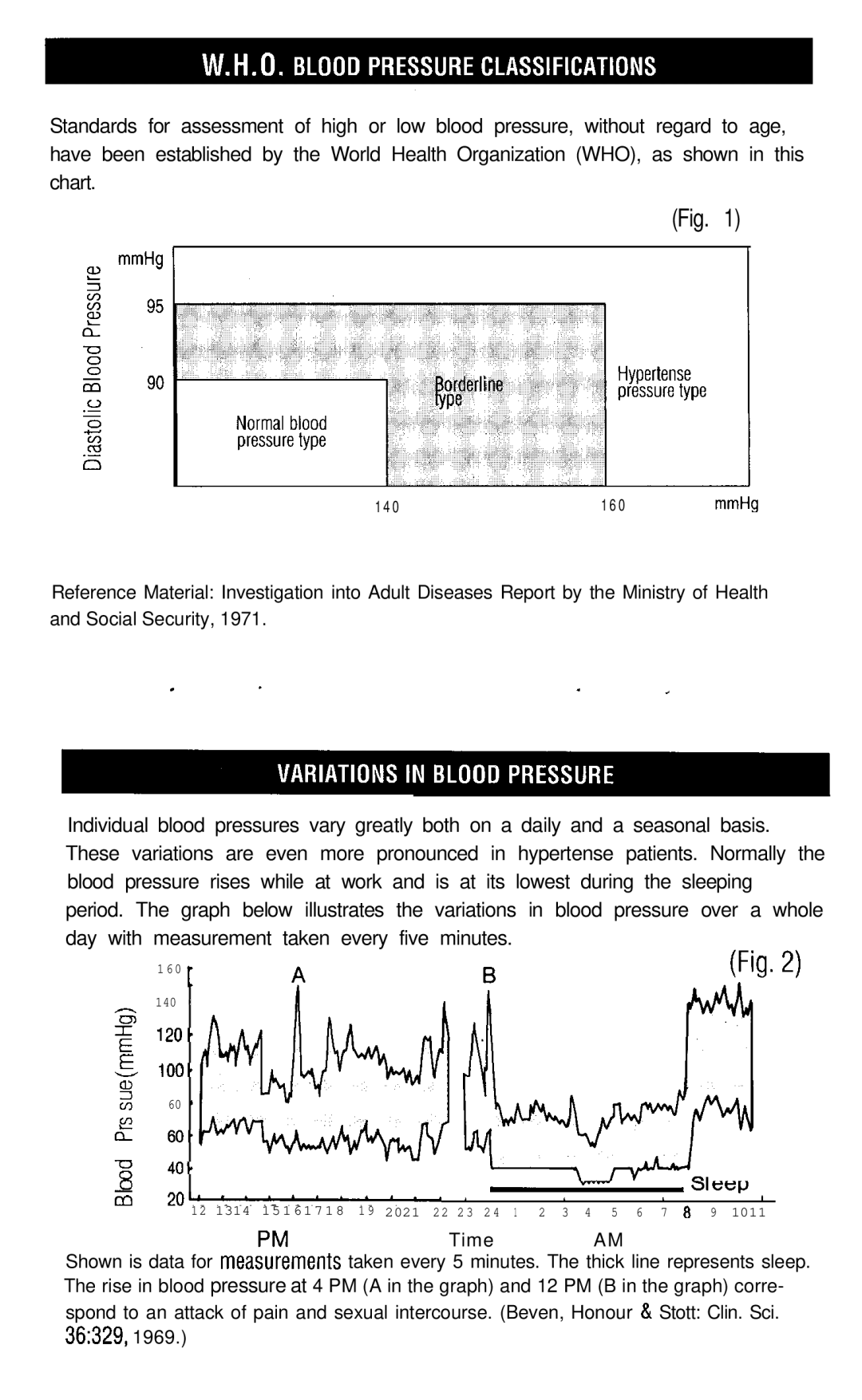
Standards for assessment of high or low blood pressure, without regard to age, have been established by the World Health Organization (WHO), as shown in this chart.
(Fig. 1)
1 4 0 | 1 6 0 | mmHg |
Reference Material: Investigation into Adult Diseases Report by the Ministry of Health and Social Security, 1971.
Individual blood pressures vary greatly both on a daily and a seasonal basis. These variations are even more pronounced in hypertense patients. Normally the blood pressure rises while at work and is at its lowest during the sleeping period. The graph below illustrates the variations in blood pressure over a whole day with measurement taken every five minutes.
1 6 0
| [ |
|
|
|
|
|
|
|
|
|
|
|
|
|
|
|
|
| |||
53 | 140 | * |
|
|
|
|
|
|
|
|
|
|
|
|
|
|
|
|
|
| |
|
|
|
|
|
|
|
|
|
|
|
|
|
|
|
|
|
|
|
| ||
E | 120, |
|
|
|
|
|
|
|
|
|
|
|
|
|
|
|
|
|
|
| |
.c | 100. |
|
|
|
|
|
|
|
|
|
|
|
|
|
|
|
|
|
|
| |
P |
|
|
|
|
|
|
|
|
|
|
|
|
|
|
|
|
|
|
|
| |
z | 60 |
| * |
|
|
|
|
|
|
|
|
|
|
|
|
|
|
|
|
| |
&' | 60. |
|
|
|
|
|
|
|
|
|
|
|
|
|
|
|
|
|
|
| |
40. |
|
|
|
|
|
|
|
|
|
|
|
|
|
|
|
|
|
|
| ||
0 |
|
|
|
|
|
|
|
| . |
|
|
| . |
|
|
| . |
|
| . | |
m | 20'...'."'.' |
|
|
|
|
|
|
|
|
| |||||||||||
2 2 | 2 3 | 2 4 | 1 | 2 | 3 | 4 | 5 | 6 | 7 | 8 | 9 | 1011 | |||||||||
|
| 1 2 | 1314 | 1 5 1 6 1 7 1 8 | 1 9 | 2021 | |||||||||||||||
|
|
|
|
|
|
|
|
| Time |
|
|
|
| AM |
|
|
|
|
| ||
Shown is data for mea&!ments taken every 5 minutes. The thick line represents sleep. The rise in blood pressure at 4 PM (A in the graph) and 12 PM (B in the graph) corre-
spond to an attack of pain and sexual intercourse. (Beven, Honour & Stott: Clin. Sci. 36:329, 1969.)
